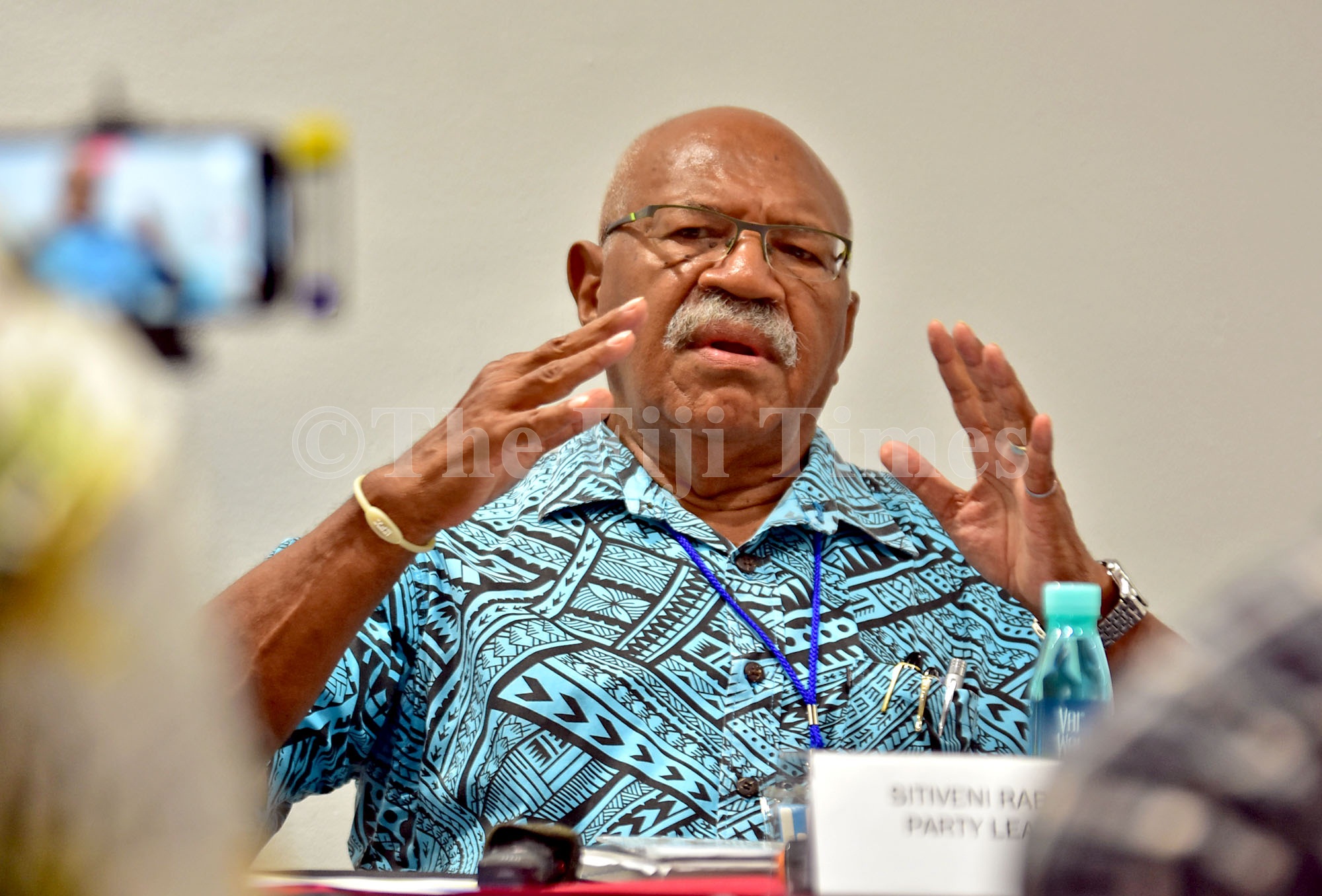A Government of national unity could have helped avoid the 1987 coup, says leader of The People’s Alliance Sitiveni Rabuka.
Asked about comments he made in an interview with Radio Tarana in New Zealand on whether he was sorry for what he did in 1987, Mr Rabuka said: “In my reply, I explained that the coup that I led was part of the evolution of a nation.”
“In the history of other countries, such developments are labelled as civilization, conquest, occupation or even settlement.
“It happened with the Maoris in New Zealand, also experienced by the Native Americans in the United States.
“But in Fiji’s case, we asked ourselves how we could do things better after 1987, and our response was what the country saw from 1992 to 1999, the cooperation between the government I led, the SVT party and that of the other political parties in Parliament.
“It was in that context that I made the remarks now attributed to me, that if a government of national unity or a coalition between the Alliance Party of Ratu Sir Kamisese Mara and the National Federation Party of Mr Jai Ram Reddy were in government in 1987, then there would have been no need for me to do what I did in that year.”
He explained that The People’s Alliance’s decision to work with the National Federation Party going into the 2022 National General Election was the logical next step.
“It is, for me, a natural progression from the cordial relationship I, as leader of the SVT Party, and the NFP developed during the constitutional amendment search of 1996-97 period. Mr Rabuka said the sharp divide between the Alliance Party (made up of the Fijian Association, the General Electors Association and the Indian Alliance) and the National Federation Party (made up of Native Land Tenant canefarmers, sugar industry workers and some middle-class businessmen and professionals) would have disappeared if they had agreed to a coalition or for a government of national unity.
“The country would have taken the next step towards a united nation of multiethnic backgrounds, to move on from the constitutional and parliamentary arrangements agreed to under the 1970 Instruments of Independence to be granted by Queen Elizabeth II on the advice of the British Parliament.
“The sharp division of race or ethnic colours of Fiji’s politics would have evolved away and become extinct.”






